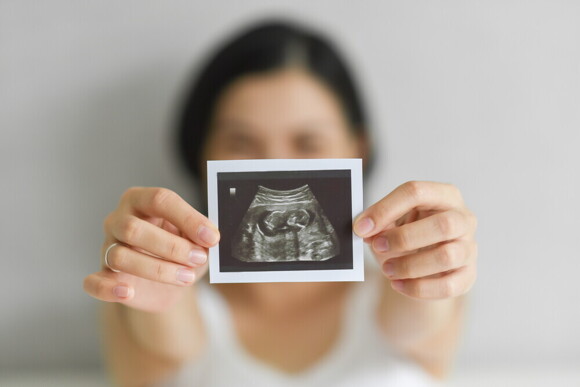
When those two pink lines appear on your pregnancy test, your calendar will quickly fill up with doctor's visits, prenatal tests, and ultrasounds. One of the most essential prenatal checkups is when your doctor performs a congenital anomaly scan, which examines your baby's development.
Ideally, you get a congenital anomaly scan during your second trimester. Keep reading to find out why the timing matters, when to book it, and how much it'll cost you.
What's a Congenital Anomaly Scan?
Also called the mid-pregnancy or 20-week scan, the congenital anomaly scan (CAS) is an ultrasound that allows your doctor to check in and see how your baby is developing in the womb.
Apart from checking the umbilical cord, placenta, and amniotic fluid volume, the CAS ultrasound looks at your baby's organs and structures, such as:
- Heart
- Kidney
- Head including skull and brain
- Face and neck
- Chest
- Abdomen
- Spine
- Extremities
- Sex
CAS also checks the umbilical cord, placenta, and amniotic fluid volume.
The goal? To monitor that everything is on track and flag any issues needing more attention. Think of this ultrasound as your baby's first wellness checkup!
Why Timing is Crucial in CAS

The congenital anomaly scan can help tell your baby's size and the amniotic fluid volume.
Doctors typically ask most parents-to-be to schedule a congenital anomaly scan at Week 18 to Week 22 of pregnancy. Why this window? Because by this stage:
- Your baby's organs and structures are developed enough to be examined in detail.
- The scan provides clear imaging of key areas, including the heart, brain, spine, and kidneys.
- If any abnormalities are detected, there's still time to plan for further tests or medical management.
While the 18 to 22-week CAS remains the gold standard for assessment, there's growing research about the benefits of doing fetal ultrasounds earlier.
For instance, this study in the Journal of Clinical Medicine looked at data from a prenatal diagnosis clinic from 2011–2021. Researchers found that getting a scan between 14 and 17 weeks can give a valuable first look, especially if a baby shows issues in their bone, heart, and kidney development.
This study in the American Journal of Obstetrics and Gynecology also found that ultrasounds performed around 16 weeks were highly accurate for detecting major congenital conditions. However, since some conditions might not be fully developed or visible that early, follow-up scans later in pregnancy remained essential.
An earlier scan can give you more time to consider extra tests or make necessary medical decisions with your doctor. However, early findings can also cause stress during the most delicate time in your life.
If you're considering getting a first-trimester anomaly scan, talk with your doctor to weigh the benefits and if it's the right choice based on your pregnancy and family medical history. Remember, what matters most is that you feel well-informed and supported.
Congenital Anomalies Detected by the Scan
Some of the conditions that a congenital anomaly scan spots include:
- Heart issues like holes in the heart or hypoplastic (underdeveloped) left heart
- Neural tube conditions like spina bifida (incomplete spinal cord closure) and anencephaly (missing parts of the brain/skull)
- Cleft lip or palate
- Abdominal wall problems like gastroschisis (intestines outside the body) and omphalocele (abdominal organs in a sac)
- Absent kidneys (renal agenesis), polycystic kidneys, or urinary blockages
- Missing digits, clubfoot, or skeletal dysplasia.
- Chromosomal anomaly markers suggesting Down syndrome
Heart problems in babies can sometimes be overlooked in ultrasounds done before the 18th week of pregnancy. Doctors can usually spot these issues in scans at 20 weeks. Also, some health issues related to the brain or intestines can appear after the 24th week of pregnancy.
What to Expect During the Scan

Your doctor will let you know if you need follow-up scans later in pregnancy.
Your doctor will tell you how to prepare for the congenital anomaly scan, but there's no fasting involved. They might ask you to eat something or come in with a full bladder to help get the baby moving for the scan.
The scan may take at least 45 minutes. A sonographer will apply gel to your belly and use an ultrasound probe to capture images. You may be able to see your baby moving and even get a clearer look at their tiny fingers and toes! Results are usually reviewed by your doctor, who will explain any findings and discuss the next steps if necessary.
Based on published costs, the price of a CAS ultrasound can start from anywhere between ₱3,500 to ₱4,500. Some facilities offer standard 2D scans, while others provide advanced 3D or 4D imaging for a more detailed look at your baby, which is more expensive.
Take a Deep Breath
It's completely normal to feel a mix of excitement and anxiety before, during, and after this prenatal ultrasound, especially if you're a first-time parent. But remember, the congenital anomaly scan helps you feel more prepared and reassured about your baby's health. And in most cases, it confirms that everything is going just fine!
To avoid unnecessary stress, talk to your doctor about the best timing for your scan based on your pregnancy progress. Lean on your partner, family, or friends for support. Trust that you're doing everything possible to give your baby the best start in life.
Have you seen your baby in amazing detail? Join ParenTeam's Facebook group, tell us how your congenital anomaly scan went, and share your photos!
References
Jabaz, Doaa, and Suzanne M. Jenkins. “Sonography 2nd Trimester Assessment, Protocols, and Interpretation.” StatPearls - NCBI Bookshelf, November 12, 2023. https://www.ncbi.nlm.nih.gov/books/NBK570574/.
Cleveland Clinic Medical Professional, “20-Week Ultrasound (Anatomy Scan),” Cleveland Clinic, March 19, 2025, https://my.clevelandclinic.org/health/diagnostics/22644-20-week-ultrasound.




























